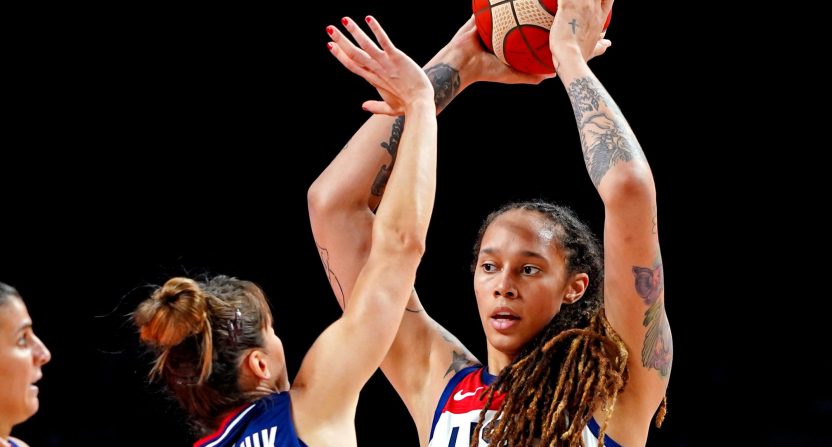Over four months after she was detained in a Russian airport, WNBA star Brittney Griner will finally stand trial on drug charges on Friday. However, according to legal experts who spoke with the New York Times, the likelihood that she will receive a fair trial is rare and the possibility that she will avoid a conviction is very low.
“There’s a bias mainly because the Russian judicial system says they really should not go to trial unless the defendant is going to be convicted,” said William Pomeranz, the acting director of the Kennan Institute and an expert on Russian law. “There’s no real idea or expectation that the defendant could be innocent. There’s no presumption of innocence, really.”
The claim against Griner is that vape cartridges containing traces of hashish oil were found in her luggage back in February. If convicted, she faces up to 10 years in a penal colony.
Griner’s lawyer, Aleksandr Boikov, said Monday that he expected the trial to last as long as two months.
“We do not know at this point what evidence they have,” Pomeranz said. “We don’t know how many volumes of evidence they want to read into the record, but usually, in this type of case, it’s formidable and significant.”
Griner’s wife Cherelle has been a leading voice to get the U.S. government to intervene and get Griner back home. She’s also shared how difficult and heartbreaking the circumstances have been for Brittney and her family. The State Department has said that the WNBA star’s release is a top priority but there are a lot of larger issues at play in securing her return.
“This is the classic dilemma of hostage situations,” said Thomas Firestone, a former Justice Department official who worked in Moscow as a lawyer, told the Times. “If you negotiate for the release, you may be encouraging future hostage-taking. If you don’t, the person may never be released.”
[NY Times]






